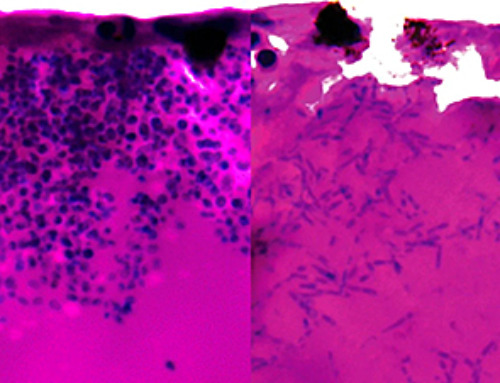As of August 6, 2021, the severe acute respiratory syndrome coronavirus 2 (SARS-CoV-2), which is the virus responsible for the coronavirus disease 2019 (COVID-19), has infected over 201 million people and caused the deaths of almost 4.3 million worldwide.
The high transmissibility and unpredictable nature of SARS-CoV-2 has supported the rapid development of several COVID-19 vaccines that have already been distributed in many countries around the world. To date, almost 30% of the world’s population has received at least one dose of a COVID-19 vaccine.
The recent rise in COVID-19 cases
The rise in SARS-CoV-2 cases in Israel, as well as many other countries around the world, requires a better understanding of how SARS-CoV-2 immune protection can weaken over time in both vaccination individuals and those who are convalesced seropositive as a result of previous SARS-CoV-2 infection. To this end, a recent study published on the preprint server medRxiv* determines whether the time elapsed since the second dose of the BNT162b2 vaccine is associated with an increased risk of breakthrough SARS-CoV-2 infection.
About the study
The current study is a retrospective cohort study that is based on data collected from the Leumit Health Services (LHS), which is a large healthcare provider in Israel. The cohort included 33,993 individuals who had received a reverse transcriptase polymerase chain reaction (RT-PCR) test between May 15, 2021, and July 26, 2021, at least two weeks after receiving their second dose of the COVID-19 vaccine.
To reflect the vaccine rollout stages, the researchers included three age groups in the study, which included individuals who were 60 or older, between the ages of 40 and 59, and between the ages of 18 and 39. Importantly, at the time of their RT-PCR test, none of the study participants had any evidence of previous COVID-19 infection.
Study results
The median time between when the participants had received the second dose of the COVID-19 vaccine and received an RT-PCR test was 146 days. However, over 50% of the participants had received an RT-PCR test over 146 days since their second dose.
Using 146 days as their cut-off, the researchers found that within the 60 and over age group, 2.19% of vaccinated individuals tested positive for SARS-CoV-2. Comparably, the positivity rate in the 40-59 and 18-39 age groups was 1.93% and 1.39%, respectively. Taken together, the increase in SARS-CoV-2 infection rates across all patient populations was significant.
Notably, at the time when the study was conducted, the dominant circulating variant was the SARS-CoV-2 Delta variant B.1.617.2. Of the 113 isolates that were sent for sequencing in this study, 93% tested positive for the Delta variant.
News
Scientists Unlock a New Way to Hear the Brain’s Hidden Language
Scientists can finally hear the brain’s quietest messages—unlocking the hidden code behind how neurons think, decide, and remember. Scientists have created a new protein that can capture the incoming chemical signals received by brain [...]
Does being infected or vaccinated first influence COVID-19 immunity?
A new study analyzing the immune response to COVID-19 in a Catalan cohort of health workers sheds light on an important question: does it matter whether a person was first infected or first vaccinated? [...]
We May Never Know if AI Is Conscious, Says Cambridge Philosopher
As claims about conscious AI grow louder, a Cambridge philosopher argues that we lack the evidence to know whether machines can truly be conscious, let alone morally significant. A philosopher at the University of [...]
AI Helped Scientists Stop a Virus With One Tiny Change
Using AI, researchers identified one tiny molecular interaction that viruses need to infect cells. Disrupting it stopped the virus before infection could begin. Washington State University scientists have uncovered a method to interfere with a key [...]
Deadly Hospital Fungus May Finally Have a Weakness
A deadly, drug-resistant hospital fungus may finally have a weakness—and scientists think they’ve found it. Researchers have identified a genetic process that could open the door to new treatments for a dangerous fungal infection [...]
Fever-Proof Bird Flu Variant Could Fuel the Next Pandemic
Bird flu viruses present a significant risk to humans because they can continue replicating at temperatures higher than a typical fever. Fever is one of the body’s main tools for slowing or stopping viral [...]
What could the future of nanoscience look like?
Society has a lot to thank for nanoscience. From improved health monitoring to reducing the size of electronics, scientists’ ability to delve deeper and better understand chemistry at the nanoscale has opened up numerous [...]
Scientists Melt Cancer’s Hidden “Power Hubs” and Stop Tumor Growth
Researchers discovered that in a rare kidney cancer, RNA builds droplet-like hubs that act as growth control centers inside tumor cells. By engineering a molecular switch to dissolve these hubs, they were able to halt cancer [...]
Platelet-inspired nanoparticles could improve treatment of inflammatory diseases
Scientists have developed platelet-inspired nanoparticles that deliver anti-inflammatory drugs directly to brain-computer interface implants, doubling their effectiveness. Scientists have found a way to improve the performance of brain-computer interface (BCI) electrodes by delivering anti-inflammatory drugs directly [...]
After 150 years, a new chapter in cancer therapy is finally beginning
For decades, researchers have been looking for ways to destroy cancer cells in a targeted manner without further weakening the body. But for many patients whose immune system is severely impaired by chemotherapy or radiation, [...]
Older chemical libraries show promise for fighting resistant strains of COVID-19 virus
SARS‑CoV‑2, the virus that causes COVID-19, continues to mutate, with some newer strains becoming less responsive to current antiviral treatments like Paxlovid. Now, University of California San Diego scientists and an international team of [...]
Lower doses of immunotherapy for skin cancer give better results, study suggests
According to a new study, lower doses of approved immunotherapy for malignant melanoma can give better results against tumors, while reducing side effects. This is reported by researchers at Karolinska Institutet in the Journal of the National [...]
Researchers highlight five pathways through which microplastics can harm the brain
Microplastics could be fueling neurodegenerative diseases like Alzheimer's and Parkinson's, with a new study highlighting five ways microplastics can trigger inflammation and damage in the brain. More than 57 million people live with dementia, [...]
Tiny Metal Nanodots Obliterate Cancer Cells While Largely Sparing Healthy Tissue
Scientists have developed tiny metal-oxide particles that push cancer cells past their stress limits while sparing healthy tissue. An international team led by RMIT University has developed tiny particles called nanodots, crafted from a metallic compound, [...]
Gold Nanoclusters Could Supercharge Quantum Computers
Researchers found that gold “super atoms” can behave like the atoms in top-tier quantum systems—only far easier to scale. These tiny clusters can be customized at the molecular level, offering a powerful, tunable foundation [...]
A single shot of HPV vaccine may be enough to fight cervical cancer, study finds
WASHINGTON -- A single HPV vaccination appears just as effective as two doses at preventing the viral infection that causes cervical cancer, researchers reported Wednesday. HPV, or human papillomavirus, is very common and spread [...]





















